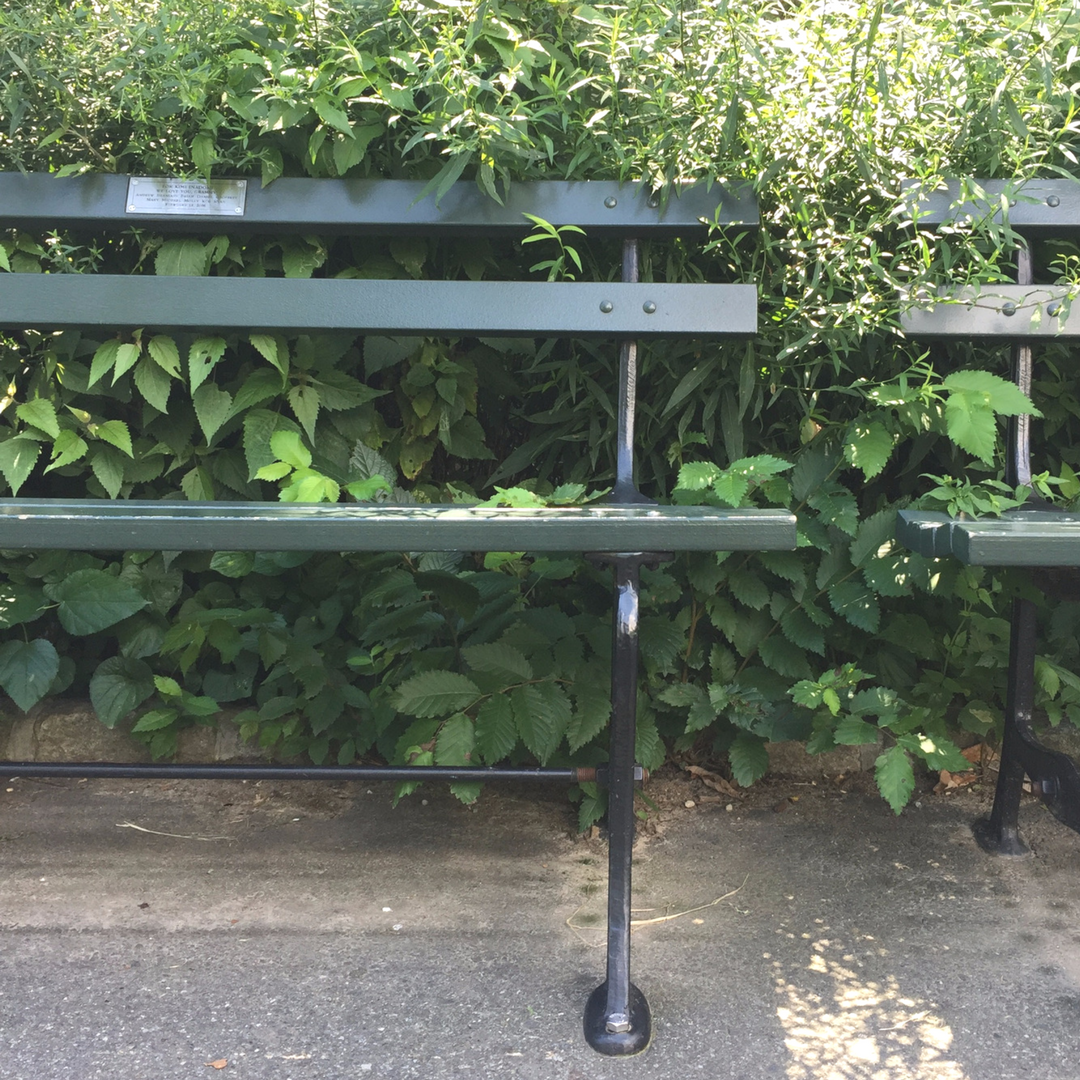
The Spiritual Discipline of Remembering
They say nothing really prepares you for motherhood. Almost nine years in, and five kids later, I agree. I read the books, I asked the questions, I watched those ahead of me on the path. And yet when I started having babies I had to figure everything out. The nursing, the quieting down a screaming infant, learning how each child responds differently to structures, their own emotions, and the people around them. One milestone is reached, one routine established, one question answered, and the next day you find yourself starting all over again.
If you like order, routine, and predictably, motherhood will throw you off your game in the worst (and best) kind of way.
I had pictured myself singing to my children, making their baby food, spending long days sprawled out on the floor doing puzzles and sorting shapes and colors. The images of motherhood in my mind were put there by what I had witnessed, or perhaps the things that I wanted to witness in other women’s lives.
We often catalog the good pieces of life, not even realizing that’s what we’re doing.
Somehow in my dream of motherhood I never imagined that I would sit by the side of the pool holding back tears while my child resisted swimming lessons, or the anger that I would face when I was still changing my five year old son’s diapers. Fear for my children’s safety was of course on the list of issues I would face, but not fear of how they might fit into social settings because they couldn’t communicate. It never occurred to me that there might be a day when simple tasks like grocery shopping and cooking dinner would feel impossible. I didn’t have a file folder for these kinds of experiences and emotions.
If you’ve grieved over any loss you know that grief comes in waves. You can’t predict it, you can’t plan for it, and you can only hold back the waves for a time; eventually you’ll find yourself caught up under the weight of the current, struggling for air.
This time the waves started crashing at the end of the school year. Mason was about to graduate from Pre-K at the public school and we attended a Kindergarten informational meeting. Mason listened attentively to the teachers as they presented the materials for the parents. I tucked my arm around him and smiled at how much I knew he would charm his teacher the next year; everyone at school loves Mason, and most of the Administration knows him by name.
But then the presentation switched to the academic side of things, because of course it did, this is school after all. And as they showed us slide after slide of all the things our children would be learning, it was all I could do to hold back the tears. Write their names, identify all the letters and sounds, read 50 sight words, etc. Mason only knows three letters, and can’t write any of them. He can count to three, but even that is inconsistent.
Suddenly all the progress he had made the past 6 months in school vanished and all I could feel was an overwhelming sense of defeat. “He’s never going to be able to accomplish all of this. Are we making a mistake? How am I going to help him?”
As with most of the grief I’ve experienced in my adulthood, I had to tuck it away. The school auditorium, in front of a group of strangers, and in front of my son was no place to give way to the emotions I felt. So, I bottled it up, we walked home, and life went on.
As summer has progressed and I’m with Mason day in and day out again, I keep noticing all of the areas where he’s behind other children his age, even his younger sister. My mind focuses on all that needs to be done: the potty training, learning the alphabet, communicating his needs, drinking from a cup, listening to + following instructions the first time, counting, cutting a straight line, etc.
We’re working on all these things, and more than ever I feel the need to push him. With his entrance into school, his delays are more obvious. I can’t deny what’s happening and facing these realities is a daily must, which means I need space to allow myself to grieve.
How do you grieve? Anyone who suffers loss will ask this question, maybe out loud, but always internally. Do you give way to any and every emotion? How long are you allowed to have these feelings? At what point do you suppress, and move on?
I don’t have all the answers, but I do know that if I don’t allow myself to grieve over the losses that come as a result of the brokenness of this life, I will never fully know the hope that is found in Jesus.
So this summer I’ve taken the time to tuck myself away. I’ve cried, curled up on the bed behind a closed door. I’ve taken walks on the beach and sat in the sand staring at the water. I’ve prayed openly to the Lord about my anger, my sadness, my fears. And I’ve felt the peace of God–better than any kind of understanding he might give me–through bringing my requests to him.
Perhaps the biggest lesson I’ve learned in the process of grief is that in the darkest moments and in the seasons of acceptance, grief must always involve remembering. Yes, you remember the pain and the loss–these things are not easily forgotten–, but you must also force yourself to remember the character and promises of God. Sometimes this comes easily, but often it’s an intentional preaching of truth to your broken soul.
Much of the brokenness from grief is accompanied by fear. Fear of how to navigate the new life you’ve been given and fear of all the unknowns that lie ahead. The Old Testament gives record of the Israelites encountering similar fears. They were fearful of the Canaanites, fearful of wandering in the desert, fearful that there wouldn’t be enough water or food. At each point along the way, God spoke to their fears with reminders of who he was and what he had done. He reminded them how he had delivered them from slavery in Egypt. He instructed them to build altars and piles of rocks as signs for future generations to remember the provision and fulfilled promises of God. Even regulations about tassels on their clothing were symbols for them to remember the commandments of God. The phrases “Remember how” and “Lest you forget” appear numerous times throughout the story of God’s people becoming a nation. Even Jesus, in some of his final words to the disciples, took the bread and the cup and said, “Do this in remembrance of me.”
Remembering is important to God.

And you shall remember the whole way that the Lord your God has led you these forty years in the wilderness, that he might humble you, testing you to know what was in your heart, whether you would keep his commandments or not…that he might make you know that man does not live by bread alone, but man lives by every word that comes from the mouth of the Lord…” —Deuteronomy 8:2-3
And so, like the Israelites–and the disciples and all those who partake of the Lord’s Supper– I remember.
It’s a practice that requires mental and emotional energy, but it’s one that when I enter into, I walk away with a deeper awareness of God, not my fears or the circumstances that I’m facing.
I remember the way that I experienced God’s presence in the hospital and in the months that followed, when I learned about Mason’s diagnosis of Down syndrome. How he allowed my tears to become portals, ushering me into a deeper communion with him.
I remember the therapists that God provided who came to our home and opened their offices each week teaching Mason how to roll over, sit up, crawl, talk, and walk. How God encouraged my ignorance through the expertise of others who knew what to do and how to help my son.
I remember the day when Jennavieve took her first steps at 12.5 months, and Mason–who had only ever expressed fear over walking–at 27 months stood up and walked across the room. God gave us this surprise gift of a daughter just 15 months after Mason was born, and removed my fears of two babies so close together by using her to push Mason in his development.
I remember the ways God enabled me to care for four children when I was at my weakest and most vulnerable moments. He gave me strength day in and day out when I felt that I had nothing to give. He carried me each step along the way, and what initially felt impossible, over time became natural.
I remember that more often than not God has used challenging circumstances to grow my faith and increase my dependency upon him.
I remember the gospel. That in my most desperate condition Jesus, the perfect One, died and rose again to cleanse me from my sin and restore me to a gracious and loving God.
I remember the reality of the promise that Jesus will come again to make all things right. One day the brokenness of this world will be restored and there will be a new heaven and a new earth. One day Mason will be free from the struggles that accompany his diagnosis.

The gift of hope in Jesus through this unexpected twist in my journey of motherhood has provided me with a growing understanding of what it means to walk a life of faith. It means there will be tears and questions. There will be days filled with uncertainty. Weeks will go by with feelings of loneliness in grief. Seasons will come and go in where there will be no evident fruit, let alone growth of any kind.
And it’s in these days and seasons when I will remember that God is always at work, growing and working in ways that I can’t see. I will practice the spiritual discipline of remembering the character and work of God who has never left me and is always for me. I can navigate the grief because Jesus endured the greatest grief imaginable with his eyes fixed on the joy that would come. This same joy is mine, in life and in death: the presence and power of God with me in every moment.


2 Comments
Louise Green
Grief has certainly grown me to trust God like a Father which he really is. I have sung the chorus “He is my all in all” so many times and it has become so true as I have trusted Him. You are a great mom and writer. I appreciate it so much. I am always challenged and encouraged by your writings and sharing your heart.
Pingback: